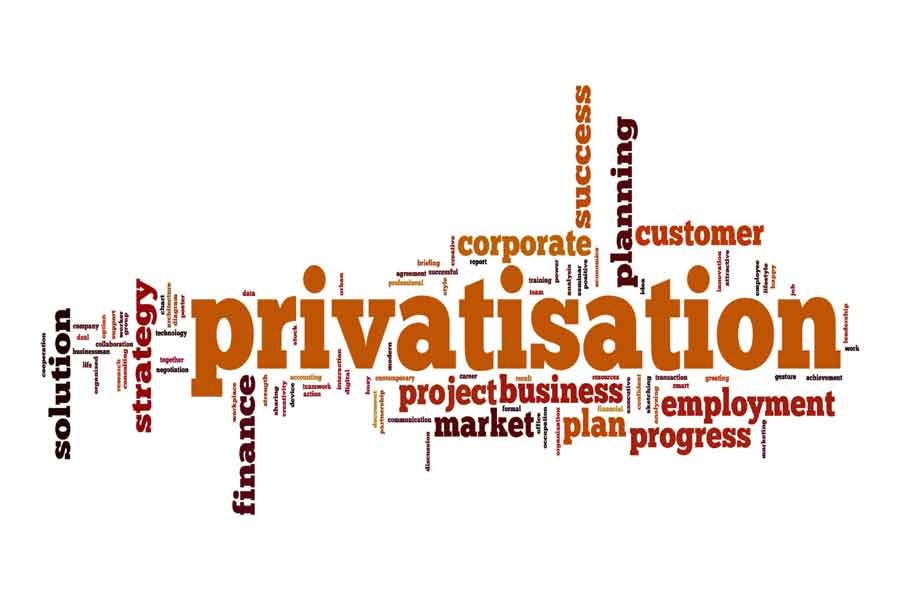There is no limit to reforms in an economy, but many economies, after having excessive reforms towards free market, had to bring reforms to revert to state control in parts of the economy. There is not a single economy in the world where some forms of state intervention are not found. A free market economy is a matter of degree. Full freedom in economic activities by individuals seems to be nice in theory, but, in practice, if that kind of freedom is allowed, the economy will head towards a cruel exploitation of the weak by the stronger.
The more accepted position is that both the State and individuals will perform economic activities in their own spheres, most of the time in competition but sometimes in cooperation. However, the State is supreme in case of adjudication.
Bangladesh has come a long way on the road to a market economy. But still the State is found to be resistant and in some cases, non-attentive in carrying out some of the needed reforms. For example, many of the so-called State enterprises, which the government itself says will be run on commercial basis, are still being run by the State at loss. The government, on behalf of the State, is providing hundreds of billions of taka as subsidies. From the period of early 80s of the last century, the government embarked on a programme of privatising the State-Owned Enterprises (SoEs), but the matter was left in the middle half-done.
The most preferable way of privatisation would have been selling of equity shares from the SoEs through stock market so that many willing investors could have owned them. But policy-makers, may be out of ignorance, sold the SoEs to individuals who later were found to be shutting them down by breaching agreed agreement with the government. Some of the buyers were never willing to expand the enterprises, but wanted only to grab the lands. They even took loans to purchase SoEs from the state-owned banks where they later defaulted. But all these do not constitute an argument for stopping the process of privatisation.
Unfortunately, the government ordered a few years back the merger of the Privatisation Commission with the Board of Investment as if all works on privatisation have already been done. The fact is that privatisation process was never over. Many enterprises are still with the government which once made profit but are now running at losses. Some of the SoEs' shares were partly off-loaded to the stock market before 1990s. Those were performing well then, but overtime they turned out to be non-performing simply because the government held majority shares in them and sat on the boards of the management of those SoEs.
The government ownership has some inherent weaknesses in decision making as the same is not vested neither with the managing director of the concerned SoEs, nor, for that matter, with the local management boards. In some cases, local management boards of the SoEs were only the recommending bodies. The final decision rested with the line Ministry at the centre of the government. The SoEs proved utterly inefficient and could have never competed with the same type of enterprises in the private sector. If anyone thinks that the SoEs like jute mills under the Bangladesh Jute Mills Cooperation one day will perform, they will be proved utterly wrong.
The SoEs have already sunk up to their necks in accumulated losses. They are neither able to service the current loans they took from banks nor could they have made up any part of the accumulated losses of the past. In most cases, their net worth is negative. They even do not qualify to receive any fresh loans from the commercial banks. But with government backing and in some cases under its guarantees, they receive bank loans, in most cases, from the SoCBs (State-Owned Commercial Banks). Any person who studied even a little bit of economics or science of business will suggest that the SoEs be closed down, but these are allowed to go on by the very government which is supposed to bring efficiency in the economy.
The SoEs like Osmania Glass Sheet, Eastern Cables, Karnafully Paper Mills and Karnafully Rayon Mills once were star industries in the economy, but these cannot even cover the variable or running cost. Some of the SoEs, which are listed with the Dhaka Stock Exchange because of partial privatisation in the past through stock market, reported recently that they could not earn any profit. That type of news breaks the hearts of the stock investors who invested in those stocks by buying from the stock market.
Yes, the non-performing sector of the economy, which is mostly under the State, is now a small part of the economy. But when even a small part of the economy is run by feeding it taxpayers' money, that hurts the people. What has caused the government to stop privatisation altogether? The appropriate policy of the government should have been to sell SoEs through stock market, and concentrate on building and maintaining of big infrastructural projects. Money that is to be received from such sales could be used to finance other priority projects of the government.
Many countries across the world have already completed the agenda of privatisation, but Bangladesh has so far failed to do so. It appears that the government in Bangladesh has abandoned the issue of privatisation altogether. There is no logic of keeping ordinary industries like cables and glass industries under government ownership.
Market economy warrants appropriate regulation, not ownership of industries by the government. In Bangladesh, the policy-makers often say it is not the business of the government to run industries but, in reality, it still runs many of those. As it is in all market economies, regulation should be the primary function of the government, not the ownership of industries.
The writer is Professor of Economics at the University of Dhaka.


